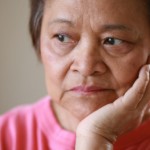
Burning mouth syndrome (BMS) is a burning or painful sensations from an oral mucosa with no clinical signs of pathology or identifiable medical or dental causes. Its prevalence has been reported to be between 0.1-3.9% and the incidence is thought to increase in those over 50 with incidence being highest in those in their 70s. BMS is a often chronic having a negative impact on quality of life (QoL). A wide range of treatments including those offer for neuropathic conditions such as antidepressants and anticonvulsants have been used.
The aim of this Cochrane review was to determine the effectiveness and safety of any intervention versus placebo for symptom relief and changes in QoL, taste, and feeling of dryness in people with BMS.
Methods
Searches were conducted in the Cochrane Oral Health’s Trials Register, Cochrane Central Register of Controlled Trials (CENTRAL), Medline, Embase, ClinicalTrials.gov, World Health Organization International Clinical Trials Registry Platform databases and the conference proceedings of the British Society for Oral Medicine (BSOM); British Society for Dental Research (BSDR); and International Association for Dental Research (IADR).
Randomised controlled trials (RCTs) comparing any treatment against placebo in people with BMS were considered. The primary outcomes were symptom relief (pain/burning) and change in QoL. Secondary outcomes included change in taste, feeling of dryness, and adverse effects. The usual robust Cochrane methodological approaches were followed.
Results
- 23 RCTs involving 1121 patients were included.
- 18 were considered to be at high risk of bias, 4 unclear at risk and only 1 at low risk of bias.
- The overall quality of the evidence for effectiveness was very low for all interventions and all outcomes.
- 21 RCTs assessed short-term symptom relief. There is very low-quality evidence of benefit from:-
- electromagnetic radiation (one RCT, 58 participants),
- topical benzodiazepines (two RCTs, 111 participants),
- physical barriers (one RCT, 50 participants),
- and anticonvulsants (one RCT, 100 participants).
- There was insufficient/contradictory evidence regarding the effectiveness of antidepressants, cholinergics, systemic benzodiazepines, dietary supplements or topical treatments. No RCT assessing psychological therapies evaluated short-term symptom relief.
- Four studies assessed long-term symptom relief. There is very low-quality evidence of a benefit from
- psychological therapies (one RCT, 30 participants),
- capsaicin oral rinse (topical treatment) (one RCT, 18 participants), and
- topical benzodiazepines (one RCT, 66 participants).
- There was no evidence of a difference for dietary supplements or lactoperoxidase oral rinse. No studies assessing antidepressants, anticonvulsants, cholinergics, electromagnetic radiation or physical barriers evaluated long-term symptom relief.
- Short-term change in QoL was assessed by seven studies (none long-term).The quality of evidence was very low. A benefit was found for electromagnetic radiation (one RCT, 58 participants), however findings were inconclusive for antidepressants, benzodiazepines, dietary supplements and physical barriers.
- Secondary outcomes (change in taste and feeling of dryness) were only assessed short-term, and the findings for both were also inconclusive.
- With regard to adverse effects, there is very low-quality evidence that antidepressants increase dizziness and drowsiness (one RCT, 37 participants), and that alpha lipoic acid increased headache (two RCTs, 118 participants) and gastrointestinal complaints (3 RCTs, 138 participants).
- We found insufficient/contradictory evidence regarding adverse events for anticonvulsants or benzodiazepines.
- Adverse events were poorly reported or unreported for cholinergics, electromagnetic radiation, and psychological therapies. No adverse events occurred from physical barriers or topical therapy use.
Conclusions
The authors concluded:-
Given BMS’ potentially disabling nature, the need to identify effective modes of treatment for sufferers is vital. Due to the limited number of clinical trials at low risk of bias, there is insufficient evidence to support or refute the use of any interventions in managing BMS. Further clinical trials, with improved methodology and standardised outcome sets are required in order to establish which treatments are effective. Future studies are encouraged to assess the role of treatments used in other neuropathic pain conditions and psychological therapies in the treatment of BMS.
Comments
This review is an update of the 2005 Cochrane review on this topic. The previous version of this review included 9 RCTs so while there has been an increase in the number of trials conducted on BMS the quality of these studies is low as only one of the included studies could be considered to be at low risk of bias. The authors also note that there was considerable heterogeneity in the types of interventions and how they were delivered as well as a wide range of outcomes assessment measures. Consequently, there is a lack of high quality research to guide clinicians who manage patients with BMS and high quality RCTs of suitable size and duration (longer than 3 months) are needed to establish effective treatment approaches. The trials should follow international best practice and comparisons between studies would be assisted by the development of a common outcome set as described by COMET (Core Outcome Measures in Effectiveness Trials Initiative).
Links
Primary paper
McMillan R, Forssell H, Buchanan JAG, Glenny AM, Weldon JC, Zakrzewska JM. Interventions for treating burning mouth syndrome. Cochrane Database of Systematic Reviews 2016, Issue 11. Art. No.: CD002779. DOI:10.1002/14651858.CD002779.pub3.
Other references
Cochrane Oral Health Group Blog – Relieving the symptoms of burning mouth syndrome: what works?
Dental Elf – 25th Oct 2012
Tongue protector and topical aloe vera for treatment of burning mouth syndrome
Dental Elf – 23rd Oct 2012

Burning mouth syndrome: treatments are they effective? https://t.co/iWYWMGwPfD
Burning mouth syndrome: insufficient evidence for effectiveness of current treatments https://t.co/BWHgQpDOby
Burning mouth syndrome: insufficient evidence for effectiveness of current treatments https://t.co/iWYWMGOqEd
Low quality evidence for all treatments of burning mouth syndrome https://t.co/iWYWMGwPfD
Current treatments for burning mouth syndrome have little evidence to prove or disprove effectiveness https://t.co/iWYWMGwPfD
Insufficient evidence for effectiveness of current treatments for burning mouth syndrome: https://t.co/iWYWMGOqEd
Don’t miss- Burning mouth syndrome: insufficient evidence for effectiveness of current treatments https://t.co/iWYWMGOqEd
[…] Burning mouth syndrome: insufficient evidence for effectiveness of current treatments […]
[…] Burning mouth syndrome: insufficient evidence for effectiveness of current treatments […]